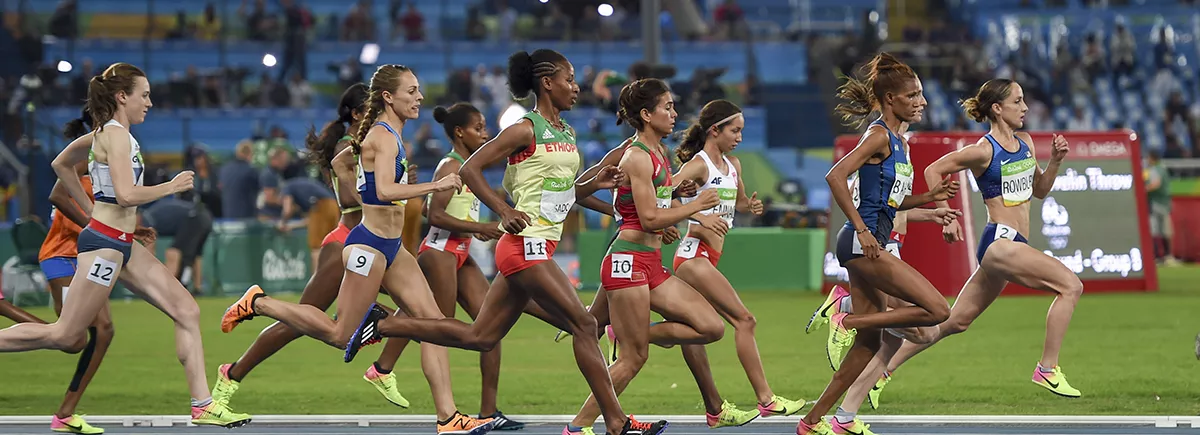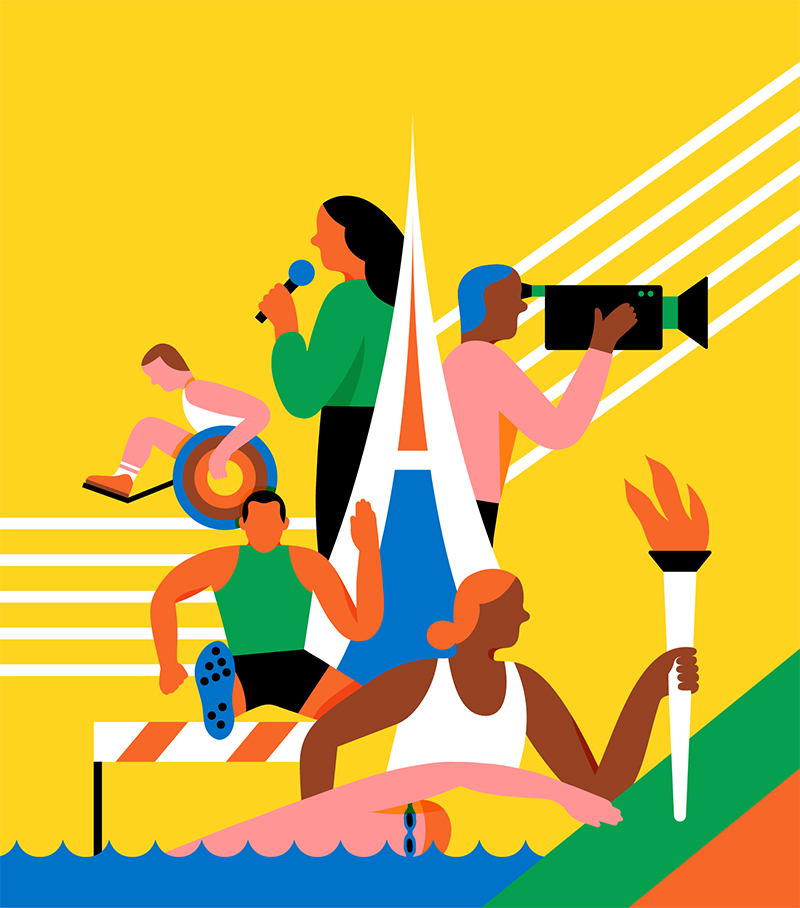
Journalism and women's sport: will the Paris 2024 Games foster greater gender equality?
Related project
Paris Médias 2024The International Olympic Committee describes the biggest global sporting event of the year, which will take place in Paris this summer, as"the first Games in history with a perfect gender balance". But will the media follow suit and require perfect gender equality in sports editorial offices? An update on the progress made and challenges still to face in this regard was provided at the most recent International Agora for Journalism in Tours in March 2024.
The Paris 2024 Olympic and Paralympic Games will be the first Games with a perfect gender balance, provided that the expected number of qualified athletes actually compete, i.e. 5250 women and 5250 men. This represents a giant leap forward for humanity, bearing in mind that women were prohibited from entering grandstands and arenas in ancient times and were unable to compete in the first Olympic Games in 1896. Sandy Montañola, a senior lecturer at the University of Rennes and renowned expert on this subject, puts this into perspective: "Each time the Olympic Games come round, we see an increase in the number of women taking part, but the disparities remain huge... We must look at the distribution of men and women by country, by sport and in coaching and management positions. These disparities are predominantly linked to societal inequality."
Aziza Nait Sibaha, a France 24 journalist and founder of the Taja Sport platform cites the compelling example of the 2022 Women's Africa Cup of Nations in Morrocco, which saw great success in the media and was very well received by the public. Following this success, she is convinced that: "The fight against inequality is the same almost everywhere in the world. Women's sport does not receive the same media coverage or resources as men's sport. However, this vicious circle can become a virtuous circle if, as media stakeholders, we cover women's sport. We will have an audience, and, if we have an audience, we can sell advertising rights!"
Quotas for women in sports editorial offices?
In order to change how sports are covered in the media, media outlets will first need to change how they do things, particularly with regard to how they view female sports journalists. "Appearing on TV screens made us believe that we had to be unique to such an extent that we didn't fight hard enough for each other", explains Marie Portolano, a former sports journalist who has produced a documentary entitled "Je ne suis pas une salope, je suis journaliste" [I'm not a bitch, I'm a journalist].
Mejdaline Mhiri, Editor-in-Chief of the Les Sportives [Sportswomen] magazine and co-founder of Femmes journalistes de sport (FJS), a French association of female sports journalists, adds: "Our association has established a directory of female experts organised by sporting discipline and sponsorship opportunities to support young female journalists. We also have a WhatsApp chat group where members can post job offers."
In addition, in 2023, 61 French media outlets signed the Charte pour une meilleure égalité femmes/hommes dans les rédactions sportives, a charter to encourage greater gender equality in sports editorial offices. Tiffany Henne, a freelance journalist, wishes the media would do more and act quicker: "I support the idea of quotas for women in editorial offices, as if we have to wait for these men to give up their positions of responsibility, we will be here forever."
Sandy Montañola, who has carried out surveys in media outlets in several countries, estimates that, in order to bring about change, at least 30% of an editorial office's workforce must be women. There could also be a gender representative in each editorial office. For their part, journalism students are asking for training sessions with specialist speakers, focusing in particular on gender-based and sexual violence, to be offered earlier in their course.
Sport does not have a gender!
Aziza Nait Sibaha encourages the media to act even earlier: "We must go into schools and start teaching about equal opportunities. If we do not fight the stereotypes, boys will continue to play football and girls will grow up watching from the sidelines. Sport does not have a gender!"
In order to bring about greater equality in terms of media coverage, Nathalie Iannetta, Sports Director at Radio France, is launching an appeal to athletes taking part in the Paris 2024 Games this summer: "Like women, men must be prepared to talk about their personal lives and vulnerabilities."
Text: Emmanuel de Solère Stintzy
Paris Médias 2024, a project that seeks to promote women's sport in the Arab world
In March, CFI set its sights on bringing about greater gender equality by launching its Paris Médias 2024project, which is tailored to this year's Olympic and Paralympic Games. Fifty journalists from Sub-Saharan Africa and the Arab world will receive training on how to provide media coverage of major sporting events and will travel to Paris to cover the Olympic and Paralympic Games from a pop-up editorial office.
.One of the project components consists in training the beneficiary journalists to reference women, who are severely under-represented on satellite channels, particularly in the North African and Middle Eastern media, in their articles. The content produced by the beneficiary journalists will therefore provide an opportunity to showcase the performance of the female African athletes who will hopefully be up to the challenge, after all, Africa's hopes are resting on their shoulders.



